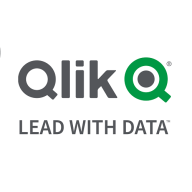

Informatica Intelligent Data Management Cloud (IDMC) and Qlik Compose are significant players in the data management sector. Based on feature richness and flexibility, IDMC tends to hold an advantage due to its comprehensive capabilities and integration support.
Features:IDMC offers seamless integration of MDM, data quality, and data integration modules. It supports various styles with a flexible architecture and excels in data profiling and ETL capabilities. Qlik Compose provides basic ETL functions and suitable automation features, including real-time replication and automation capabilities for designing warehouses.
Room for Improvement:IDMC needs to enhance integration with SAP systems, improve data stewardship, and address GUI performance issues. Users seek more pre-configured business rules. Qlik Compose requires enhancements in scalability and better transformation functions for large-scale data processing.
Ease of Deployment and Customer Service:IDMC is available for on-premises, hybrid, and cloud environments, providing flexible customer service, praised for support but affected by time zone delays. Qlik Compose is primarily for on-premises and private cloud, with mixed service reviews varying from prompt to slow.
Pricing and ROI:IDMC is considered costly but offers comprehensive features with good ROI from improved data quality and reduced management time. Qlik Compose is less cost-effective, lacking advanced features for complex transformations, resulting in higher licensing costs but remains competitive in the market.


Informatica Intelligent Data Management Cloud (IDMC) is a robust platform used by banks, financial institutions, and health sector organizations for data management, governance, and compliance.
IDMC provides comprehensive tools for data discovery, profiling, masking, and transformation. It supports Salesforce integration, real-time data streaming, and scalable data management solutions. Health organizations manage national product catalogs while financial entities focus on data protection and regulatory compliance. Its intuitive interface, flexible features, and robust tools make it valuable across sectors, though enhancements in data integration and human workflow are being sought.
What are the most important features?
What benefits and ROI should be considered?
Banks and financial institutions use IDMC for data masking, transformation, and compliance, while health sector organizations leverage it for national product catalogs. Industry applications focus on automating business processes, centralizing data, and managing data catalogs to meet regulatory demands and ensure data protection.
Qlik Sense is a powerful business intelligence tool that offers a range of features to help organizations make faster and more informed decisions. Its primary use cases include operational and financial dashboards, self-service reporting, and centralized access to cross-functional reports. The solution is praised for its mobile platform, ease of use, data-sharing capabilities, and extensibility.
Qlik Sense has helped organizations improve data literacy, reduce time consumed in complex reports, and provide widely available MI to senior stakeholders. It also enables self-service analytics, improves data quality and governance, enhances collaboration, and reduces costs.
We monitor all Data Integration reviews to prevent fraudulent reviews and keep review quality high. We do not post reviews by company employees or direct competitors. We validate each review for authenticity via cross-reference with LinkedIn, and personal follow-up with the reviewer when necessary.